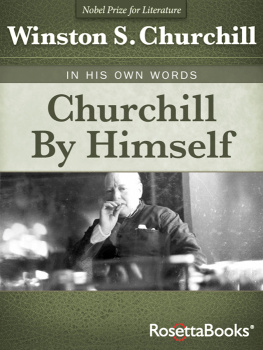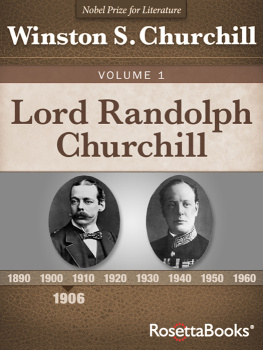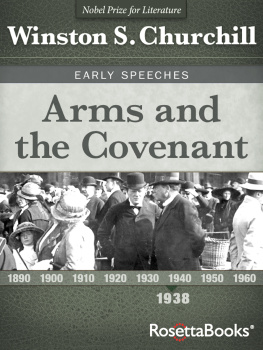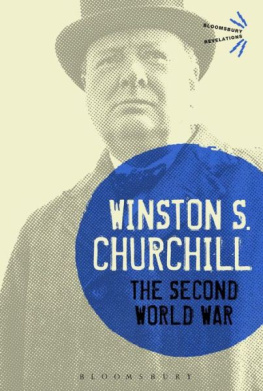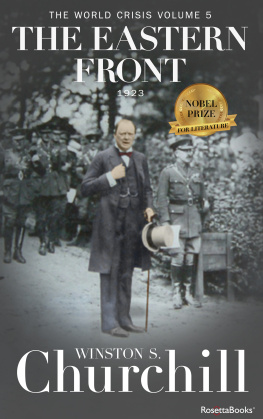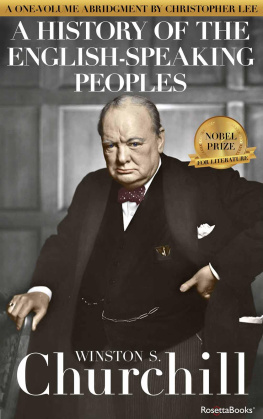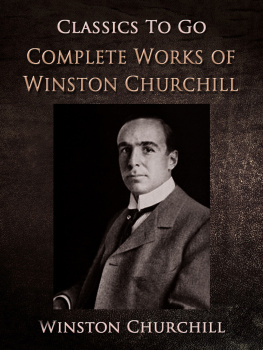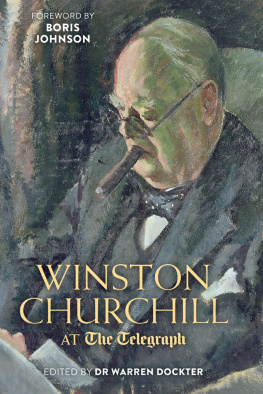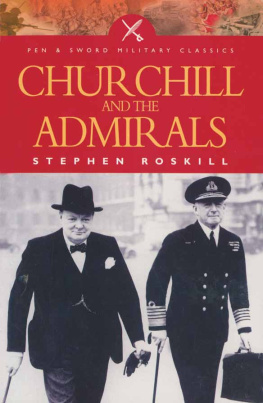Winston S. Churchill - Painting as a Pastime
Here you can read online Winston S. Churchill - Painting as a Pastime full text of the book (entire story) in english for free. Download pdf and epub, get meaning, cover and reviews about this ebook. year: 2021, publisher: eBookIt.com, genre: Art. Description of the work, (preface) as well as reviews are available. Best literature library LitArk.com created for fans of good reading and offers a wide selection of genres:
Romance novel
Science fiction
Adventure
Detective
Science
History
Home and family
Prose
Art
Politics
Computer
Non-fiction
Religion
Business
Children
Humor
Choose a favorite category and find really read worthwhile books. Enjoy immersion in the world of imagination, feel the emotions of the characters or learn something new for yourself, make an fascinating discovery.

- Book:Painting as a Pastime
- Author:
- Publisher:eBookIt.com
- Genre:
- Year:2021
- Rating:3 / 5
- Favourites:Add to favourites
- Your mark:
- 60
- 1
- 2
- 3
- 4
- 5
Painting as a Pastime: summary, description and annotation
We offer to read an annotation, description, summary or preface (depends on what the author of the book "Painting as a Pastime" wrote himself). If you haven't found the necessary information about the book — write in the comments, we will try to find it.
Painting as a Pastime — read online for free the complete book (whole text) full work
Below is the text of the book, divided by pages. System saving the place of the last page read, allows you to conveniently read the book "Painting as a Pastime" online for free, without having to search again every time where you left off. Put a bookmark, and you can go to the page where you finished reading at any time.
Font size:
Interval:
Bookmark:
Painting as a Pastime
by Winston Churchill
Subjects: Autobiographical Essay (Illustrated) -- Heads of State; British Prime Ministers; Oil Painting; Picture Books
First published in 1932
This edition published by Reading Essentials
Victoria, BC Canada with branch offices in the Czech Republic and Germany
For.ullstein@gmail.com
All rights reserved. No part of this book may be reproduced or transmitted in any form or by any means, electronic or mechanical, including photocopying, recording, or by any information storage or retrieval system, except in the case of excerpts by a reviewer, who may quote brief passages in a review.

Sir Winston S. Churchill
Painting as a Pastime
Many remedies are suggested for the avoidance ofworry and mental overstrain by persons who, overprolonged periods, have to bear exceptional responsibilitiesand discharge duties upon a very large scale. Some adviseexercise, and others, repose. Some counsel travel, andothers, retreat. Some praise solitude, and others, gaiety.No doubt all these may play their part according to theindividual temperament. But the element which isconstant and common in all of them is Change.
Change is the master key. A man can wear out a particularpart of his mind by continually using it and tiring it,just in the same way as he can wear out the elbows of hiscoat. There is, however, this difference between the livingcells of the brain and inanimate articles: one cannot mendthe frayed elbows of a coat by rubbing the sleeves orshoulders; but the tired parts of the mind can be rested andstrengthened, not merely by rest, but by using other parts.It is not enough merely to switch off the lights which playupon the main and ordinary field of interest; a new fieldof interest must be illuminated. It is no use saying to thetired 'mental muscles'if one may coin such an expressionIwill give you a good rest,' 'I will go for a long walk,'or 'I will lie down and think of nothing.' The mind keepsbusy just the same. If it has been weighing and measuring,it goes on weighing and measuring. If it has beenworrying, it goes on worrying. It is only when new cells arecalled into activity, when new stars become the lords ofthe ascendant, that relief, repose, refreshment are afforded.
A gifted American psychologist has said, 'Worry is aspasm of the emotion; the mind catches hold of somethingand will not let it go.' It is useless to argue with the mindin this condition. The stronger the will, the more futilethe task. One can only gently insinuate something elseinto its convulsive grasp. And if this something else isrightly chosen, if it is really attended by the illumination ofanother field of interest, gradually, and often quite swiftly,the old undue grip relaxes and the process of recuperationand repair begins.
The cultivation of a hobby and new forms of interest istherefore a policy of first importance to a public man. Butthis is not a business that can be undertaken in a day orswiftly improvised by a mere command of the will. Thegrowth of alternative mental interests is a long process.The seeds must be carefully chosen; they must fall on goodground; they must be sedulously tended, if the vivifyingfruits are to be at hand when needed.
To be really happy and really safe, one ought to have atleast two or three hobbies, and they must all be real. It isno use starting late in life to say: 'I will take an interest inthis or that.' Such an attempt only aggravates the strainof mental effort. A man may acquire great knowledge oftopics unconnected with his daily work, and yet hardlyget any benefit or relief. It is no use doing what you like;you have got to like what you do. Broadly speaking,human beings may be divided into three classes: those whoare toiled to death, those who are worried to death, andthose who are bored to death. It is no use offering themanual labourer, tired out with a hard week's sweat andeffort, the chance of playing a game of football or baseballon Saturday afternoon. It is no use inviting the politicianor the professional or business man, who has been workingor worrying about serious things for six days, to work orworry about trifling things at the week-end.
As for the unfortunate people who can command everythingthey want, who can gratify every caprice and laytheir hands on almost every object of desirefor thema new pleasure, a new excitement is only an additionalsatiation. In vain they rush frantically round from place toplace, trying to escape from avenging boredom by mereclatter and motion. For them discipline in one form oranother is the most hopeful path.
It may also be said that rational, industrious, usefulhuman beings are divided into two classes: first, thosewhose work is work and whose pleasure is pleasure; andsecondly, those whose work and pleasure are one. Of thesethe former are the majority. They have their compensations.The long hours in the office or the factory bringwith them, as their reward, not only the means ofsustenance, but a keen appetite for pleasure even in itssimplest and most modest forms. But Fortune's favouredchildren belong to the second class. Their life is a naturalharmony. For them the working hours are never longenough. Each day is a holiday, and ordinary holidayswhen they come are grudged as enforced interruptions inan absorbing vocation. Yet to both classes the need of analternative outlook, of a change of atmosphere, of adiversion of effort, is essential. Indeed, it may well bethat those whose work is their pleasure are those whomost need the means of banishing it at intervals from theirminds.
The most common form of diversion is reading. In thatvast and varied field millions find their mental comfort.Nothing makes a man more reverent than a library. 'Afew books,' which was Lord Morley's definition ofanything under five thousand, may give a sense of comfortand even of complacency. But a day in a library, even ofmodest dimensions, quickly dispels these illusorysensations. As you browse about, taking down book afterbook from the shelves and contemplating the vast,infinitely varied store of knowledge and wisdom which thehuman race has accumulated and preserved, pride, evenin its most innocent forms, is chased from the heart byfeelings of awe not untinged with sadness. As one surveysthe mighty array of sages, saints, historians, scientists,poets and philosophers whose treasures one will never beable to admirestill less enjoythe brief tenure of ourexistence here dominates mind and spirit.
Think of all the wonderful tales that have been told, andwell told, which you will never know. Think of all thesearching inquiries into matters of great consequencewhich you will never pursue. Think of all the delightingor disturbing ideas that you will never share. Think ofthe mighty labours which have been accomplished foryour service, but of which you will never reap the harvest.But from this melancholy there also comes a calm. Thebitter sweets of a pious despair melt into an agreeable senseof compulsory resignation from which we turn withrenewed zest to the lighter vanities of life.
'What shall I do with all my books?' was the question;and the answer, 'Read them,' sobered the questioner. Butif you cannot read them, at any rate handle them and, asit were, fondle them. Peer into them. Let them fall openwhere they will. Read on from the first sentence thatarrests the eye. Then turn to another. Make a voyage ofdiscovery, taking soundings of uncharted seas. Set themback on their shelves with your own hands. Arrange themon your own plan, so that if you do not know what is inthem, you at least know where they are. If they cannot beyour friends, let them at any rate be your acquaintances.If they cannot enter the circle of your life, do not denythem at least a nod of recognition.
Next pageFont size:
Interval:
Bookmark:
Similar books «Painting as a Pastime»
Look at similar books to Painting as a Pastime. We have selected literature similar in name and meaning in the hope of providing readers with more options to find new, interesting, not yet read works.
Discussion, reviews of the book Painting as a Pastime and just readers' own opinions. Leave your comments, write what you think about the work, its meaning or the main characters. Specify what exactly you liked and what you didn't like, and why you think so.

